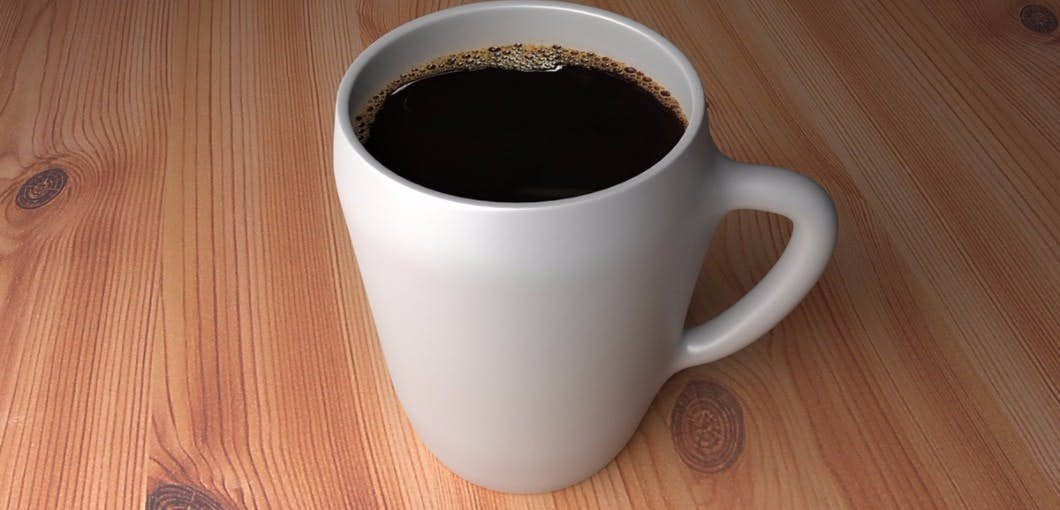
The World Health Organization Weighs In
In 2011, the World Health Organization (WHO) declared that frequent cell phone use could be a contributing factor to brain cancer. You can read the story in Issue #90.The brouhaha caused by that announcement may have overshadowed the fact that seemingly innocent items such as coffee and pickled veggies were also on their list of possible cancer-causing agents!
Even though coffee goes into the 'maybe' category—the WHO may be giving it a bum rap. Other research indicates coffee actually helps decrease cancer risk! Yes, it's true. There's some powerful evidence coffee prevents cancer. Keep reading. . .Continued below. . .
The "Missing Link" to Feeling Younger and Stronger
Your liver performs more than 500 critical biological functions... makes more than 13,000 beneficial chemicals and hormones... manages more than 50,000 enzymes and compounds that you need for great health... processes everything you eat and drink - including medication and supplements... AND purifies your blood of dangerous toxins.Yet the liver is the most underappreciated and forgotten organ in the body — even by doctors. Your doctor usually won’t talk about your liver until problems begin. But the latest research shows that when you’re suffering from health issues, your liver is usually part of the trouble. That’s because...
When Your Liver’s Healthy, So Are You!
Would you know if your liver was healthy? Watch this startling presentation and start protecting yourself from the 7 Danger Signs of a Toxic Liver!- Group 1—known carcinogens, such as tobacco smoke and UV radiation
- Group 2A—probably carcinogens, such as indoor emission of combustible fuels
- Group 2B—possible carcinogens, such as cell phones and coffee
- Group 3—not classifiable as a cancer causing agent in humans
- Group 4—most likely not a carcinogen in humans
Harvard researchers say 4 cups a day
scares uterine cancer away!
Women who daily drank more than four cups of coffee over several years were less likely to develop this type of cancer, according to lead study author Edward L. Giovannucci, M.D., a professor at the School of Public Health.
The Harvard researchers examined 67,470 women between the ages of 34 and 59 to determine effects of coffee intake on endometrial cancer. Over 26 years, they documented 672 cases of endometrial cancer among the participants.
But the researchers found that women who drank more than four cups of coffee each day reduced their risk for endometrial cancer by 25 percent.
And even if they only drank between two and three cups per day—the women still experienced a 7 percent reduced risk.
It seems coffee may reduce both insulin and free estrogen levels, which are both risk factors associated with endometrial cancer, according Dr. Giovannucci.
So were these findings an odd, one-off result? Well, the Harvard researchers noted similar findings with another type of cancer...
Could drinking coffee protect
the prostate, too?
In this case, 47,911 American men in the Health Professionals Follow-Up Study reported their coffee consumption every four years from 1986 to 2008.
There were 5,035 reported cases of prostate cancer during the study period. Researchers found that men who consumed six or more cups daily had nearly a 20 percent lower risk of developing prostate cancer.
And the link with coffee was even stronger for aggressive prostate cancer. Men who drank the most coffee lowered their risk of developing lethal prostate cancer by 60 percent! If it holds up, this would be a very significant finding.
Aggressive prostate cancer is the one to fear most, reportedly accounting for about one out of ten prostate cancer cases. Slow-growing prostate cancer accounts for the other 90 percent, and as the saying goes, "Most men die with it, not of it."
Even drinking just one to three cups of coffee daily was associated with a 30 percent lower risk of lethal prostate cancer. And these figures include adjustments to account for men who smoked and failed to exercise—behaviors that may boost prostate cancer risk.
Other studies have shown a positive link between coffee use and a reduction in risk of other types of cancer including cancer of the breast… esophagus… liver… mouth… and skin... not to mention a moderate reduction in cardiovascular disease.
I'm not surprised by the findings. It's well established that coffee is especially rich in antioxidants, as are some other unlikely-sounding substances including beer and chocolate. From what I know, green coffee beans are richer in antioxidants than roasted beans. A couple of companies even market a coffee-extract supplement.
So what gives? Why does the WHO list coffee as a possible carcinogen if so many scientific studies seem to point to its protective benefits?
More evidence needed...
One reason the WHO may have classified coffee as a 2B carcinogen can be traced to some studies showing a weak link between incidents of bladder cancer and coffee consumption among non-smokers.The December 2000 journal Cancer Causes Control published an analysis of 564 case-controlled studies in Europe. Researchers concluded that non-smokers who are heavy coffee drinkers may have a small excess risk of developing bladder cancer.
The research team cautioned that there was possible bias in the selection of the control group. On the basis of these results, they were prepared to say that only a slight proportion of bladder cancer among non-smokers could be attributed to coffee drinking.
So with such inconclusive results, you might not feel the need to toss your beans just yet. But it can never hurt to drink your java in moderation until the verdict is in.
To my way of thinking, four cups of coffee a day is a lot, although I realize many people do drink that much. I gave it up myself, reluctantly, because I was just too sensitive to the stimulant. I have a strong sense it's a harmful habit, but the evidence is mixed and you'll have to judge for yourself. Kindest regards,
 Lee Euler Publisher
Lee Euler Publisher

